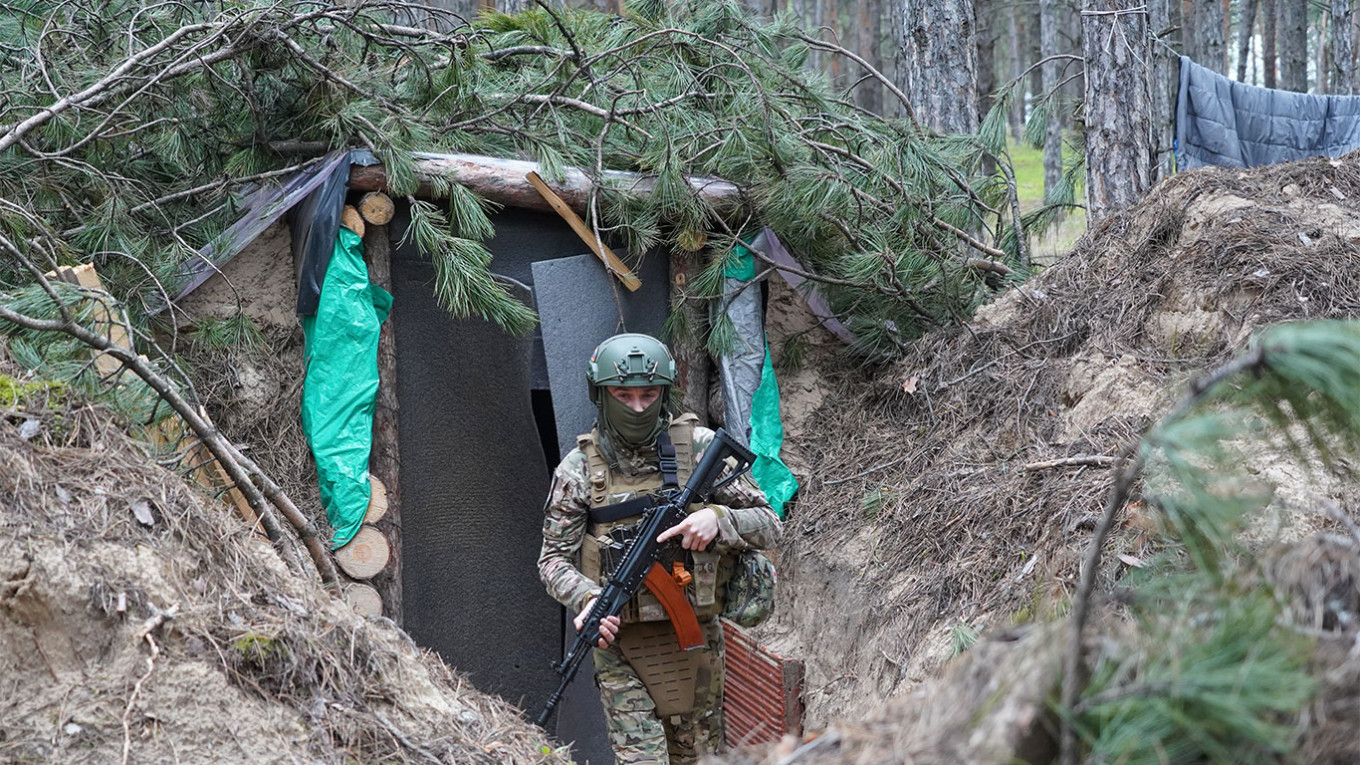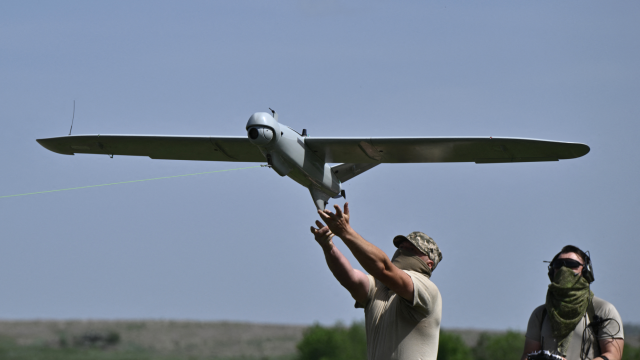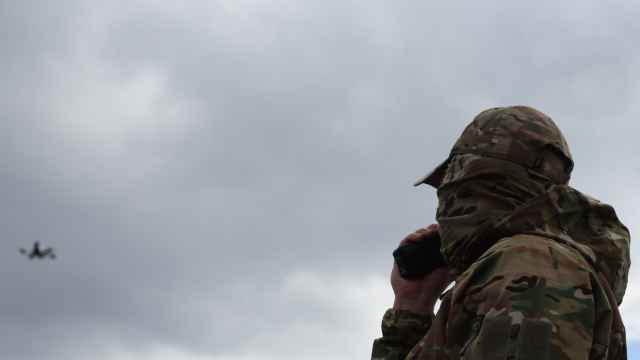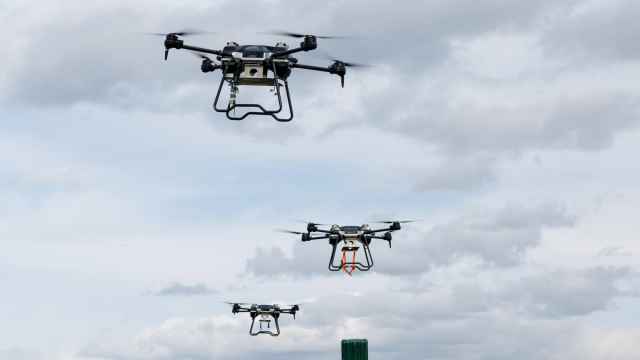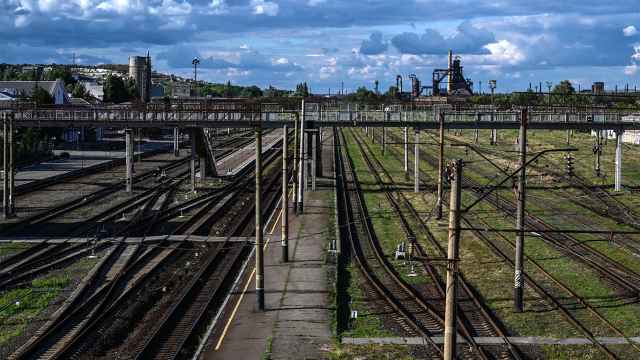Russia has boosted its defenses in occupied Ukraine ahead of Kyiv's anticipated counterattack, wagering its position on 800 kilometers of triple-fortified lines and a gush of manpower.
Now that the Ukrainian terrain, muddied by the spring thaw, has begun to dry and Russia's latest wave of attacks has fizzled out, a counterstrike may be weeks or perhaps days away.
The Russian defensive wall runs from Kherson, in Ukraine's south, to the northeast of the country, spanning more than 500 miles.
"These defensive lines consist of layered fortifications and trenches," said Brady Africk at U.S. think-tank American Enterprise Institute.
They include anti-tank ditches, raised barriers, lines of pre-fabricated defenses known as dragon's teeth, landmines and trenches for personnel, he told AFP.
The Russian objective is "to maintain control over occupied territory and to attempt to limit Ukraine's ability to conduct a counteroffensive," he said.
Moscow's strategy is to be able to "absorb any attack," said Pierre Razoux at the Mediterranean Foundation of Strategic Studies, a French research body.
"The attackers are likely to get stuck by the time they reach the second layer, and even if they get past it, the third is going to be very hard to breach," he said.
Russia will employ the time-honored strategy of channeling attacking enemy troops onto ground of their choosing, said Andrew Galer at British strategy think-tank Janes.
But Ukraine meanwhile gets to decide where to attack Russian lines, he said, adding that Kyiv may not have made its choice yet.
'No room for error'
Ukraine could well try to mislead Russia with a small-scale attack to pull defending forces there, and then direct the main attack elsewhere, he said.
Vassily Kashin, at the HSE university in Moscow, said Ukraine could pick the region of Bakhmut where battles have raged for 10 months for its attack, but acknowledged that "the data we have are very limited."
Kashin said the balance of forces at the front is changing in favor of Russia. "Ukraine can try to change this with a last desperate blow," he said.
On Monday the head of paramilitary group Wagner, Yevgeny Prigozhin, said a counteroffensive could come on the day his group took control of Bakhmut, which he said could be around May 9, the anniversary of Russia's victory over Nazi Germany in 1945.
Superiority in troop numbers remains a major advantage for Russia, boosted further by recent recruitment efforts, experts said.
"Russian forces may be exhausted by their efforts, but they still have enough personnel reserves to help absorb the shock," said Philippe Gros and Vincent Tourret at France's Strategic Research Foundation (FRS).
"They have deployed enough anti-mobility measures to complicate any Ukrainian progress considerably," they said.
Despite a lack of training, the sheer number of reservists should be enough to hold Russia's lines.
"No Ukrainian offensive, even the most successful one, will bring the war to an end," Kashin predicted.
Ukraine is better armed than a year ago, but its task is made harder by the fact that some of the weapons pledged by its Western allies have not made it to the frontline, experts said, adding that they would mostly serve to replace hardware destroyed in 14 months of warfare.
NATO chief Jens Stoltenberg said Thursday that military hardware deliveries represented "more than 98% of the combat vehicles promised to Ukraine."
But analysts said NATO deliveries were not coming fast enough to give Ukraine a strong chance of taking back lost territory.
Experts also warned that Ukraine has several other priorities besides the counterattack, including securing the cities of Kyiv and Kharkiv as well as the logistical axis between both cities.
Ukraine also must protect its border with Belarus, secure supply lines near the borders with Romania and Poland, defend Odesa in the south and prevent attacks on nuclear power installations.
Any Ukrainian advances will meanwhile only make sense if Kyiv's troops can then hold the conquered territory, an effort bringing new logistics challenges.
"The further they get retaking territory, the longer the supply chain becomes," Galer, from Janes, said.
Experts said President Volodymyr Zelensky knows he cannot afford a military debacle if he wants to keep his Western allies on his side at a time when their commitment to Ukraine is coming under increased scrutiny, especially in the United States.
"He has no room for error," said Razoux.
A Message from The Moscow Times:
Dear readers,
We are facing unprecedented challenges. Russia's Prosecutor General's Office has designated The Moscow Times as an "undesirable" organization, criminalizing our work and putting our staff at risk of prosecution. This follows our earlier unjust labeling as a "foreign agent."
These actions are direct attempts to silence independent journalism in Russia. The authorities claim our work "discredits the decisions of the Russian leadership." We see things differently: we strive to provide accurate, unbiased reporting on Russia.
We, the journalists of The Moscow Times, refuse to be silenced. But to continue our work, we need your help.
Your support, no matter how small, makes a world of difference. If you can, please support us monthly starting from just $2. It's quick to set up, and every contribution makes a significant impact.
By supporting The Moscow Times, you're defending open, independent journalism in the face of repression. Thank you for standing with us.
Remind me later.


